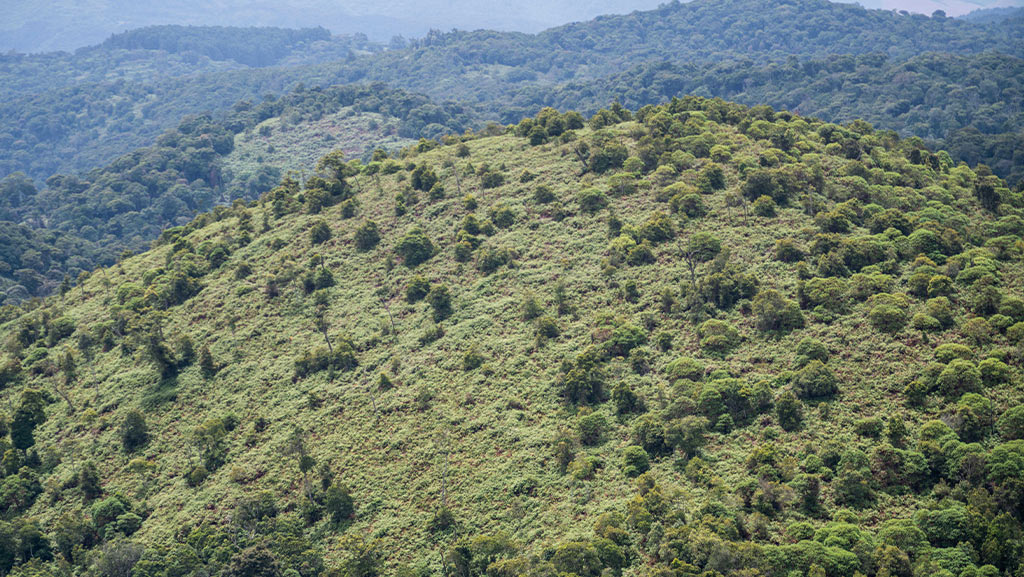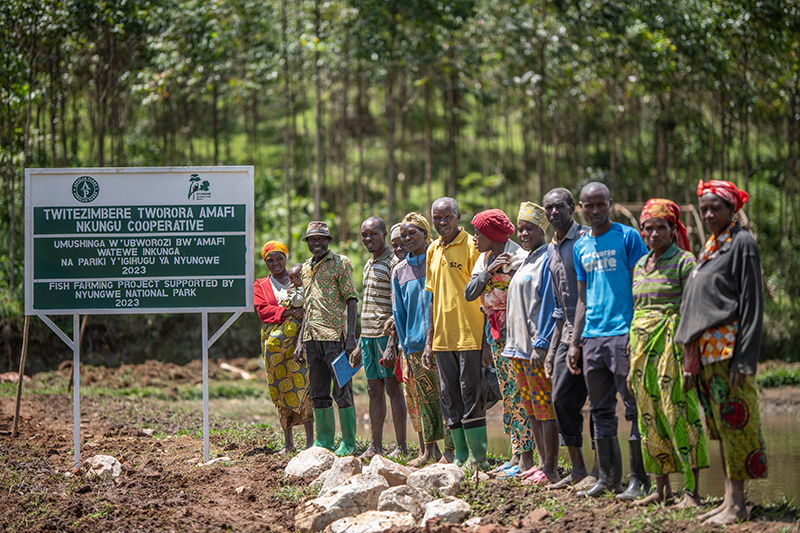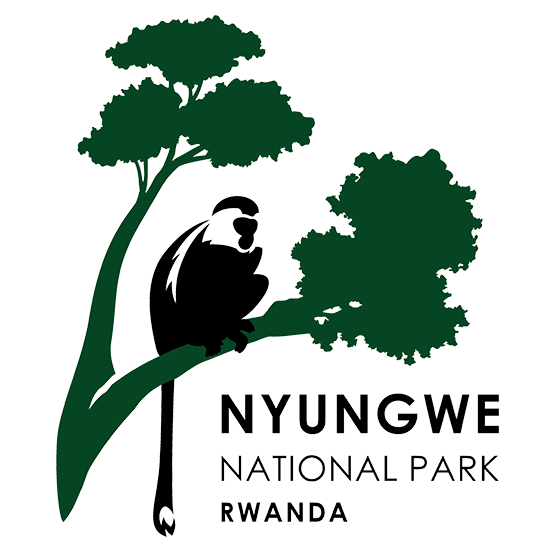
About Nyungwe National Park
Introduction
Nyungwe is the second national park in Rwanda with which African Parks has partnered. In 2020, building on a successful partnership with RDB in Akagera National Park, African Parks was invited by the government to sign a 20-year agreement to partner in managing Nyungwe National Park. Together, African Parks is working to restore and conserve the park’s biodiversity, support local communities and establish sustainable tourism to secure its long-term future. Today, Nyungwe is becoming both an ecologically healthy and financially self-sustaining national park, while fostering a strong sense of conservation ownership among neighbouring communities.
Read more about the projects and initiatives that are helping to shape that reality.
Biodiversity Restoration
Nyungwe has incredibly high wildlife diversity and endemism, making it a priority for conservation. A quarter of all of Africa’s primates, 13 species, can be found here, including the Eastern chimpanzee and two Albertine Rift endemics, L’Hoest’s monkey (Cercopithecus l’hoesti) and Hamlyn’s monkey (Cercopithecus hamlyni). The Rwenzori colobus has been observed in a single group of more than 400 individuals, the largest ever recorded of any primate on the continent. Nearly 1,100 species of plants have been recorded, of which 240 are trees and about 200 are orchids. This unique landscape allows for high levels of endemism among plants as well as animals, with more endemic species recorded here than any other forest in the region.
Sadly, over the years, unsustainable levels of illegal resource use and hunting along with historical regional instability have resulted in the probable loss of several key species. Other challenges facing the forest are diverse, from illegal extraction of minerals, fauna, and flora for commercial purposes to the invasion of exotic plants. The high density of people on the periphery of the park increases the risks of incidents of human-wildlife conflict and agricultural encroachment into the park.

While historically, Nyungwe’s rich fauna and flora was exposed to poaching, illegal mining and agricultural encroachment, today, the park is building ownership of conservation among the local communities and developing an ecologically healthy and financially self-sufficient asset. Conservation management methods, from data collection, research and monitoring to camera trapping surveys, are all helping to deepen understanding of the park.
Working with Communities to Support Sustainable Futures
Communities living around Nyungwe National Park play an essential role in its long-term sustainability. Cooperatives have been initiated and diverse livelihood initiatives explored that support local enterprises while reducing pressure on the park’s ecosystem. Projects such as pig farming and a demonstration apiary have been developed in collaboration with community members as models that others can adapt and build on.

Environmental education is also key to strengthening conservation awareness, with more than 1,500 learners from school environmental clubs visiting Nyungwe each year. Cases of human-wildlife conflict are assessed in partnership with the community, with compensation supported through Rwanda’s Special Guarantee Fund. These combined efforts are helping to build shared stewardship of the park and a sustainable future for the people and wildlife who depend on it.
Park Revenue Generation
Tourism in Nyungwe National Park is growing, creating new opportunities for local employment and enterprise while supporting the park’s long-term sustainability. As part of Rwanda’s national three-park circuit with Akagera and Volcanoes national parks, Nyungwe contributes to positioning the country as a leading wildlife and nature destination. By developing tourism and other sustainable revenue streams hand in hand with surrounding communities, Nyungwe is helping to sustain healthy terrestrial ecosystems while supporting the people who depend on them for generations to come. Read more here.

